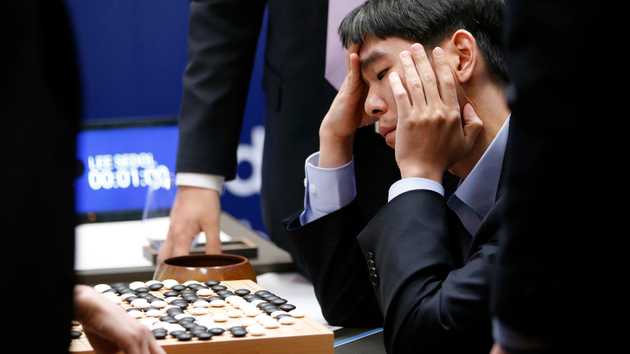Eclipse Syndrome and an AI Revelation
I was at a Plaid concert recently. The atmosphere was amazing, the crowd was huddled together escaping the freezing Seattle temperatures in the warm basement of a music venue, listening to some awesome electronic tunes.
If that is the case, then why was I so sad?
The visuals for the concert were a mesmerizing display. It had the unmistakable scent of something created with Midjourney. The images flashed by with a relentless and almost oversaturated “creativity” - transforming human faces and silhouettes into a tapestry of stars and clocks — like watching Google DeepDream on cocaine. It was stimulating, but it also left me with a deep feeling of sadness… and honestly? I felt a little bit of disgust and an urge to cry.
In my college days, I had once dreamed to create visuals for concerts. Now, witnessing an AI doing what I once struggled to imagine, I felt a twinge of something that I have been feeling a lot recently - a sensation I want to call "Eclipse Syndrome." It's the feeling that we have when we see an AI's capabilities that outright surpass our own. It’s a feeling of inadequacy; it’s the opposite of "uncanny valley" – not about AI awkwardly failing to be human enough, but instead about AI being too adept, too creative, and too alien. At the concert, AI didn't just replicate or assist in human creativity; it transcended it. It proved that it was capable of doing something that would’ve taken a human an entire lifetime to create… and it scared the shit out of me.
AI can be anti-human… maybe not in intention, but in consequence. It's reshaping creativity, distilling our sea of artistic expression into a universally palatable, common-denominator blob. The unfiltered human experience is at risk of being lost in a sea of AI output. The tool on display at the concert didn't just simplify some repetitive processes or provide a gentle helping hand to the creator; it completely eradicated the need for traditional artistic skills. The designer didn’t need to think about shading, composition, shadows; they simply fed it a set of inputs, generated a ton of images, and used video software to gently tween between them.
There is a feeling of tremendous loss there — a feeling of humans being pushed aside to make way for silicon brains who we allow to think for us.

After losing to Alphago in 2016, Lee Sedol eventually quit playing the game professionally. He was one of the most talented human beings to ever touch the game. Despite dedicating his entire life to the game of Go, he determined that it was a fruitless endeavor to even try and maintain pace with AI.
Lee Sedol is a profoundly intelligent man - a man who has an ego just like the rest of us. His tale is perhaps the most profound and powerful example of “Eclipse Syndrome” in action. When faced with the challenge of continuing his own personal growth in the game, he just simply… gave up…
Similar to Go, if you were to think about e-sports (e.g. fighting games, MOBAs, or FPS), it would be obvious that fighting against a sufficiently advanced AI would not even be fair for the humans. Most of the games’ skill revolves around pattern matching, multitasking and twitch reactions, areas which humans don’t even stand a chance. In that case, it’s obvious that this space will continue to be isolated to only human-versus-human domains simply to maintain the spirit of competition.
However in other competitive spaces, we will most likely not afford that level of respect for humankind. In the business world for example, will we simply be AI users competing against other AI users? What will distinguish competency between knowledge workers? Will promotions be handed out based on your prompting skill rather than your actual competency? How long will we maintain any level of respect for the decision making and skill of the human brain? I honestly doubt we will for much longer. I see myself using these tools, I see my friends using them, I see them being used in concerts, and I think it is only a matter of time before this tech permeates virtually every aspect of our lives. It is definitely exciting in some ways, but also exhausting, exasperating, and terrifying in other ways.
Confronting "Eclipse Syndrome" is about grappling with the very human, emotional turmoil that comes with acknowledging humanity’s role in the future. It's about coming to terms with our new role in a world where our creations, our art, our entertainment, and even our logic are no longer solely ours - where from this moment on, we will need to take a critical lens to what is unique and special about human craftsmanship. Will we cherish and protect the beautiful chemistry of raw, human thought, or will the allure of our optimized silicon assistants be too pretty for us to ignore?
On the dance floor this Saturday, I saw the signs in person; the cat is out of the bag. There's no rewinding the clock anymore. Any efforts to turn back the wheels of time are not just fruitless, but also a just a complete denial of the inexorable march of progress that we find ourselves in. We are stepping into a future where AI's role in art and creativity is not just accepted, but instead rapidly becoming an integral part of how we express ourselves.
Whether or not this is actually a good thing has yet to be seen.